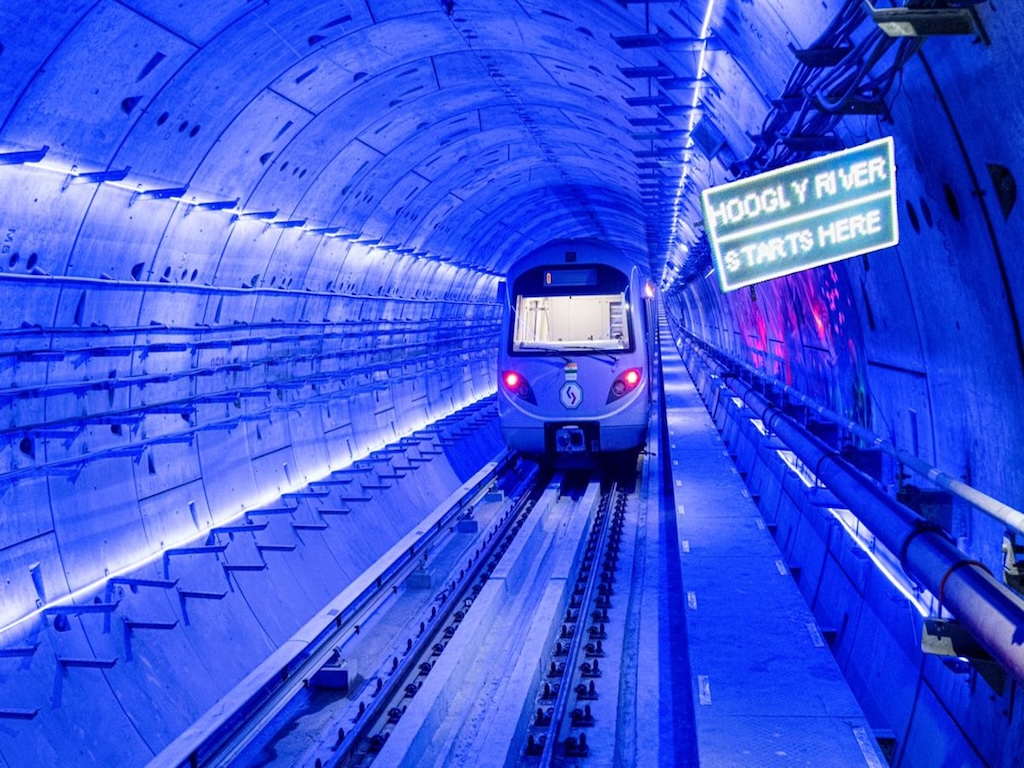April 2024 | Jindal Stainless, India’s largest stainless steel manufacturer, has supplied stainless steel for India’s first underwater metro line in Kolkata that opened for the public recently. This landmark project was inaugurated by Prime Minister Shri Narendra Modi recently.
The underwater stretch of the metro, which runs from Esplanade to Howrah Maidan on the Green Line, will cover a distance of 4.8 kilometres under the river Hooghly in 45 seconds. The route is a part of the larger East-West corridor linking Howrah Maiden to Salt Lake Sector V, a major IT hub in West Bengal.
Jindal Stainless has supplied SS 301LN – a premium austenitic grade of stainless steel – in different tempers for the fabrication of various components of the Kolkata Metro, underscoring its sustainable versatility and suitability for diverse purposes. Being corrosion-resistant, it will also not require regular repair and maintenance and emerges as the most cost-effective solution based on life cycle costing.
Commenting on this development, Managing Director, Jindal Stainless, Mr Abhyuday Jindal, said,
“The launch of the underwater metro corridor in Kolkata stands as a powerful testament to India’s infrastructural capabilities. We congratulate the Government of India on achieving this milestone. The project not only augments connectivity but also exemplifies the transformative potential of stainless steel in urban infrastructure development. Besides offering a distinctive travel experience, this monumental initiative is also poised to revolutionise urban transportation through similar marvels in the years to come.”
Howrah will be the deepest metro station in the country, at 33 metres below the ground. The tunnel under the river constructed for this line is 32 metres below the water level.
Jindal Stainless has supplied its material to various such important infrastructure projects. The company also supplied stainless steel 301LN in both cold-rolled and hot-rolled finishes to the recently rolled out Meerut metro trainsets, part of India’s first Regional Rapid Transit System (RRTS). The material was used in developing technologically advanced and state-of-the-art trainsets for Meerut metro. The Meerut metro corridor spans a length of 23 km with 13 stations, including 18 km of elevated and 5 km of underground sections. The train has a stainless steel body with a design speed of 135 kmph. It is planned to be operated at a speed of 120 kmph which will make it the fastest metro train in India.
